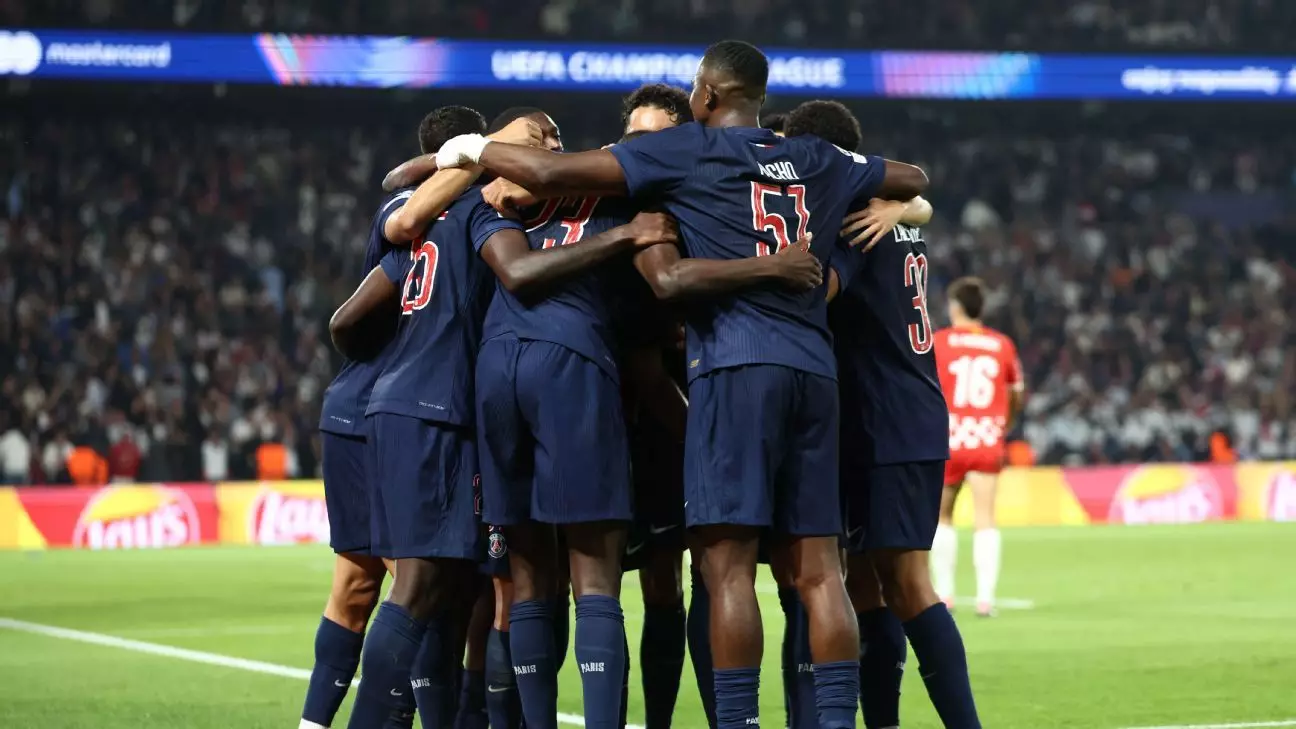In an era where sporting events are pivotal in driving societal change, instances of discrimination remain a pressing issue. Ligue 1 recently found itself in the spotlight when Paris Saint-Germain (PSG) fans directed anti-gay slurs at rival supporters and players during a match against Strasbourg. This incident brings to light the ongoing battle against homophobia in sports and showcases the inconsistencies within fan behavior, particularly when the movement for inclusivity in football is gaining momentum.
The offensive chants reportedly targeted Adrien Rabiot, a former PSG player who has since transferred to Marseille, igniting feelings of betrayal among some fans. Such slurs not only reflect poorly on PSG but also highlight a deep-seated problem in French football culture that must be addressed. When chants of this nature erupt at a time when the sport is aiming to cultivate an inclusive environment, it demonstrates a stark contradiction to the principles many leagues are trying to uphold.
In response to the incident, Ligue 1 condemned the fans’ behavior, stating that the discriminatory chants are unacceptable and undermined the collective effort to eradicate homophobic behavior from the sport. They cited their disciplinary committee’s commitment to reviewing evidence surrounding the chants. This kind of acknowledgment from the league is crucial; however, it raises questions about the effectiveness and consistency of previous sanctions. Last season, specific PSG players faced punishment for their own discriminatory celebrations, illustrating a concerning trend of intolerance within the club’s culture.
The prior disciplinary actions, such as the closure of the Auteuil stand following offensive chants, shed light on the realm of accountability in football. Nevertheless, the persistence of such incidents calls for a more robust approach to enforcing inclusivity. This ongoing controversy suggests that while steps have been taken by Ligue 1, there is still a significant gap in translating policy into practice.
The intense rivalry between PSG and Marseille adds a layer of complexity to these incidents. Historical animosities have fostered a culture that can, at times, celebrate hostility rather than sportsmanship. The chants are not merely a reflection of the match at hand but underscore the broader socio-political landscape within which these clubs operate. Since the 1990s, the rivalry has evolved, especially with PSG’s rise fueled by significant financial backing from Qatari investors, resulting in domestic dominance.
Despite Marseille’s struggles in the league, their historical prominence as the only French team to win the Champions League positions them in a unique light. This legacy helps ensure that their rivalry with PSG remains charged and is often a catalyst for negative fan behavior. The emotional investment of fans manifests in ways that transcend sport, making it imperative for clubs, leagues, and stakeholders to actively engage in dialogue about respect and acceptance.
The recent incidents at PSG games serve as a stark reminder that challenges remain in the quest for inclusivity in football. While gestures from Ligue 1 highlight a willingness to combat these issues, a cultural shift is necessary to quash discriminatory behavior altogether. It is paramount that clubs not only recognize such behavior but also take decisive action to foster a culture that unequivocally rejects hate in all forms. Only through rigorous enforcement of anti-discrimination policies, alongside educating fans and players alike, can the integrity of the sport be preserved amidst a backdrop of longstanding rivalries and unacceptable behaviors.

